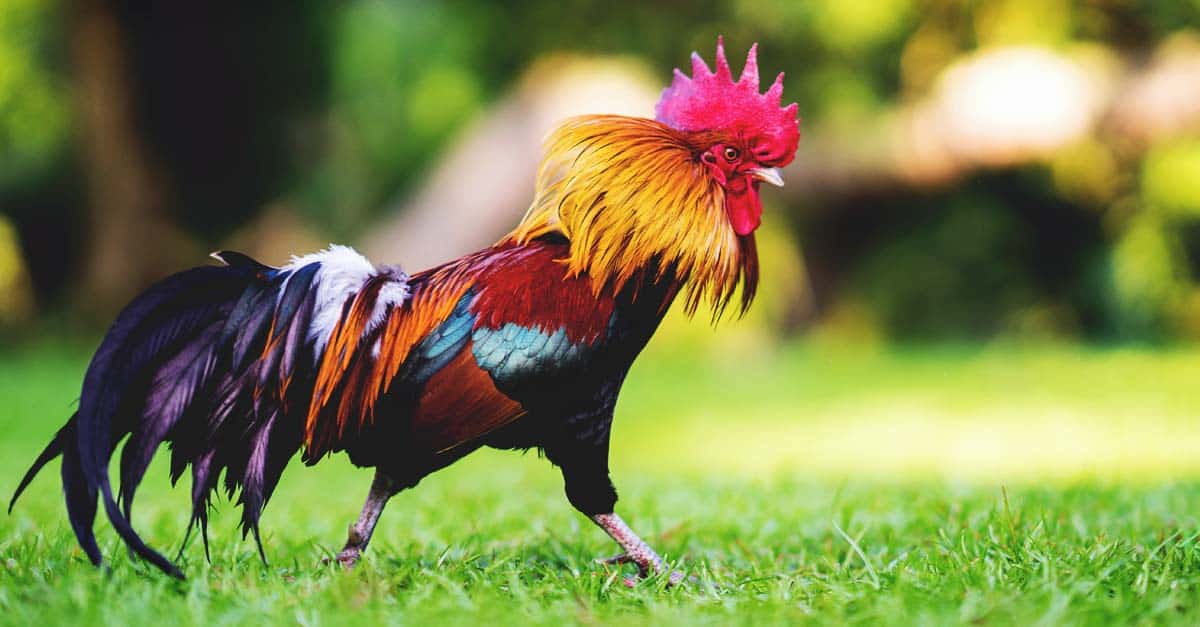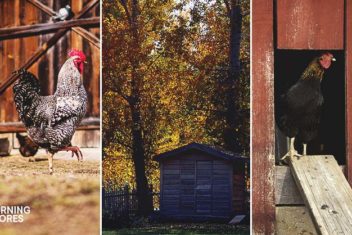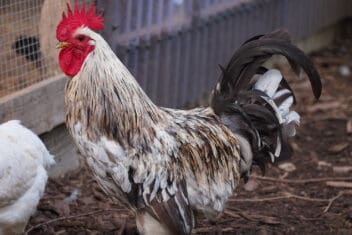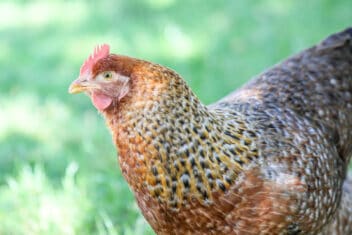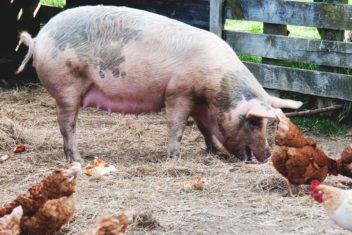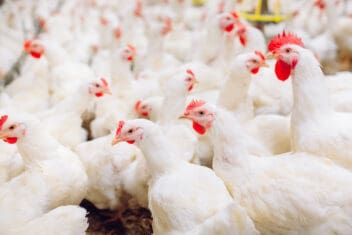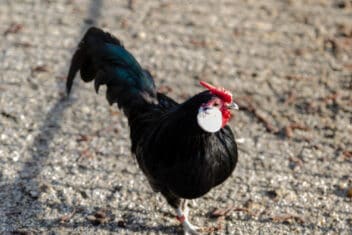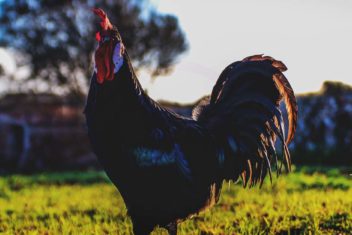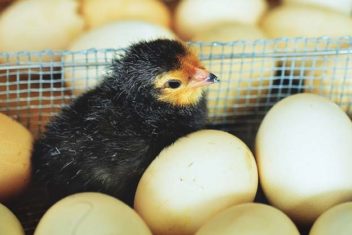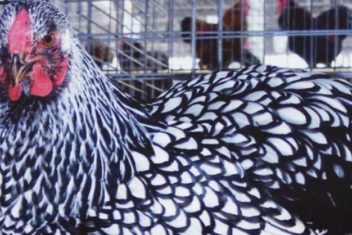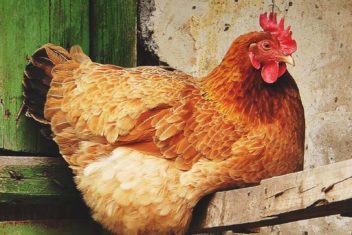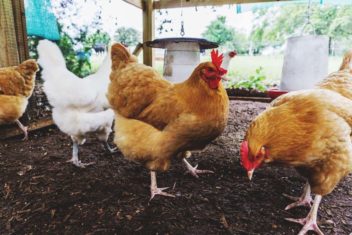Are you thinking about adding a rooster to your backyard flock? Ask any homesteader his or her opinion on the usefulness of roosters, and you’re likely to get a mixed response.
Many people choose to keep a rooster because it not only serves as an excellent guard for a flock but also makes it possible for you to incubate your own eggs (since they will be fertilized). While there are some challenges presented with keeping a rooster – such as the potential for aggression – there are plenty of reasons to keep one in your backyard flock.
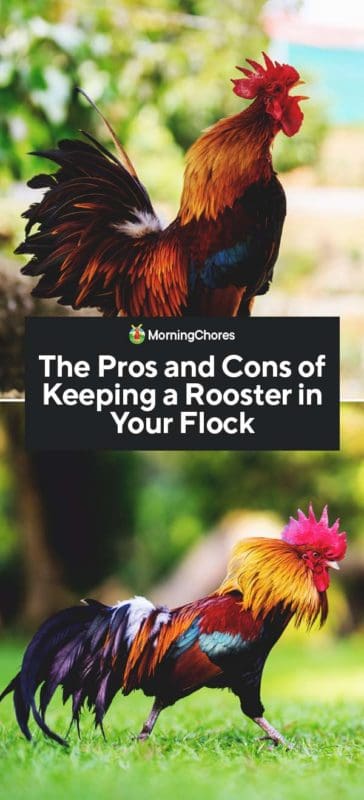
Pros to Keeping a Rooster
1. Appearance
I’ll start with the most superficial reason to keep roosters – they are gorgeous! Not only do they have gorgeous colors, but their tail feathers and unique plumage are definitely to be desired.
One of the coolest things about keeping a rooster is that you’ll also be able to witness the unique and beautiful courtship rituals that occur between a rooster and a hen. It’s quite enjoyable to watch!
2. Baby Chicks
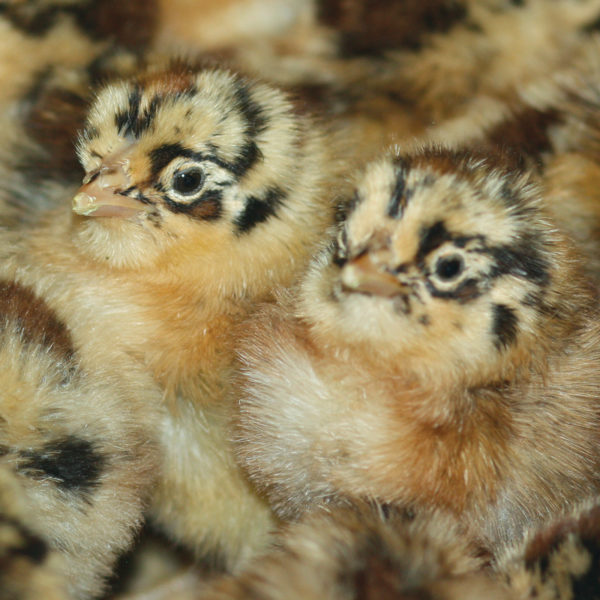
Another great reason to consider raising a rooster is that you can’t have fertilized eggs without one.
Many non-chicken keepers wrongly assume that all eggs can produce baby chicks. Not the case! In order for baby chicks to be hatched from eggs, they must be fertilized – and this is a service that only a rooster can perform.
If you want to raise chicks from your own flock, consider keeping a rooster. It doesn’t matter whether you plan on incubating your own eggs or letting a broody hen do the work for you – you just need to have a rooster in the coop.
Now, there are some people out there who believe that fertilized eggs are more nutritious than unfertilized ones. Science hasn’t necessarily backed this up, but keep in mind that fertilized eggs are no less safe, nutritious, or delicious than unfertilized ones.
3. Maintains the Flock Hierarchy
If you have a rooster, he can help maintain the pecking order. You’ve probably heard of the pecking order – it pertains to the delicate balance that exists within a flock.
Without a rooster, the hierarchy can easily be disrupted. Hens who are at the top of the pecking order can be quite vicious to those who are lower down. It can cause hens to peck each other viciously, often to the point of death.
Having a rooster in the flock can help balance out the pecking order because he will always be at the top. However, he will not be as likely to attack or bully the hens as other dominant hens might be.
4. Protection
Roosters are naturally aggressive – which many chicken keepers erroneously view as a negative trait. Aggressive roosters are aggressive for a reason, however – and that reason is that the sole job of a rooster is to protect the hens from any perceived threats.
Whether it’s a weasel or a coyote, a hawk or an owl, there is no better way to keep your flock safe from threats than to add a rooster. Not only will he squawk and carry on if he senses danger, but he will also physically guard the flock. In many flocks, the dominant or “alpha” rooster won’t run for cover himself until his girls are safe and sound.
If you have problems with your chickens wandering all over the place, then a rooster can be helpful, too. Not only will he keep the girls close to home, but he will prevent them from straying, too – after all, he’s got a territory to patrol!
5. Built-in Alarm Clock
A lot of people view this trait as a negative, too – but an equal number of people love it. A rooster can serve as your own personal alarm clock!
Roosters crow for various reasons. Usually, it’s to ensure that other roosters are aware that the territory is theirs. They will also use it to mark their hens. Often, they use crowing as a way to signal a threat or a predator.
However, what all roosters have in common is that they crow at the break of day. If you’re looking for an alarm clock that never has to be plugged in or reset, invest in a rooster.
6. Seeks Out Food
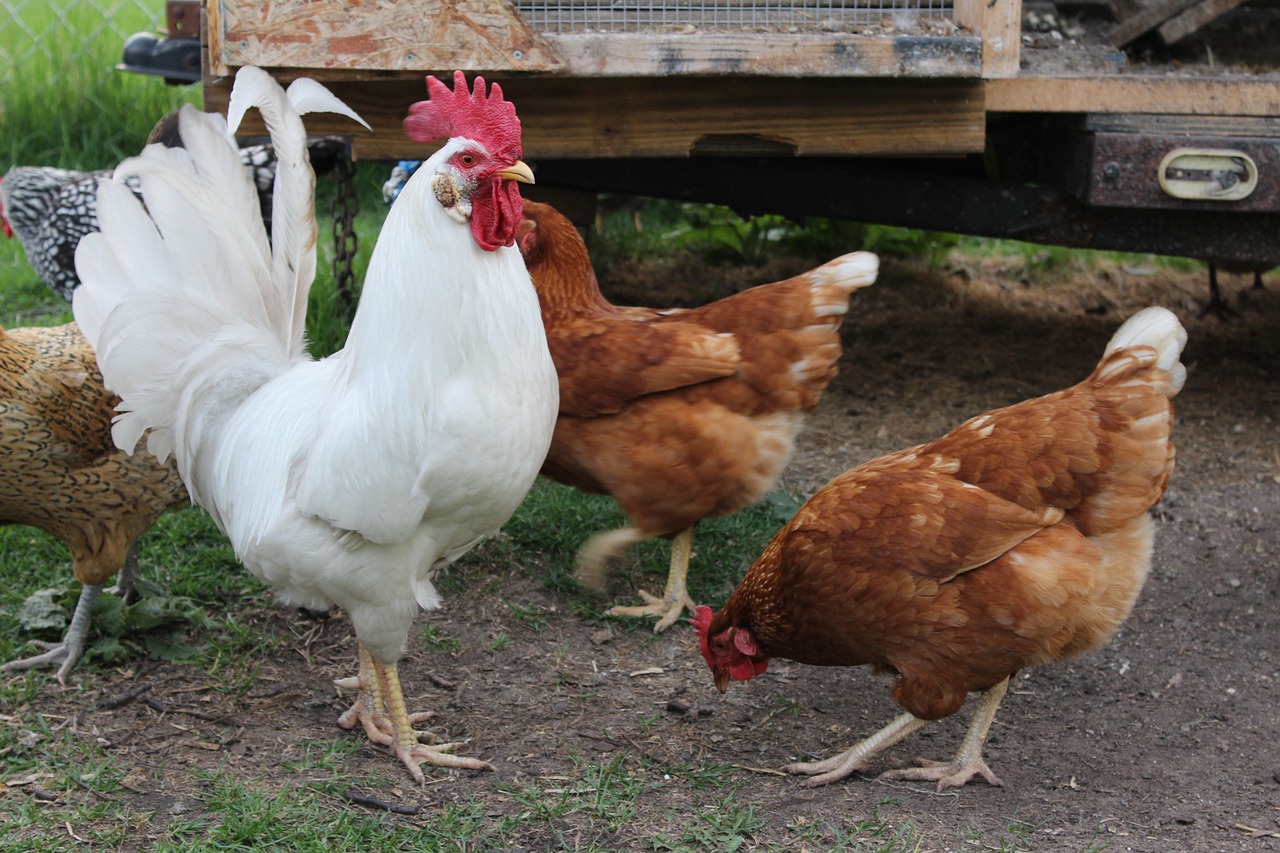
A rooster really knows how to take care of his girls! Often, a rooster will take up the job of finding food for his flock and will alert the rest of the flock to when there are tasty treats nearby.
You may have noticed this in your own flock – when you head out with some treats, is your rooster was the first one to greet you? That’s because he wants to be first in line for some snacks – but also because it’s his job to let the hens know that there is food to be enjoyed.
7. Can Also Be Food
If you raise meat birds, roosters are just as valuable – if not more so – than hens. Not only can they be butchered and eaten in the exact same way you would with hens, but they often are preferable.
The reason for this is that roosters have hormones that make it easier for them to put on weight more quickly. You could get more bang for your buck – more meat per bird – if you decide to raise roosters.
Cons to Consider Before Adding a Rooster
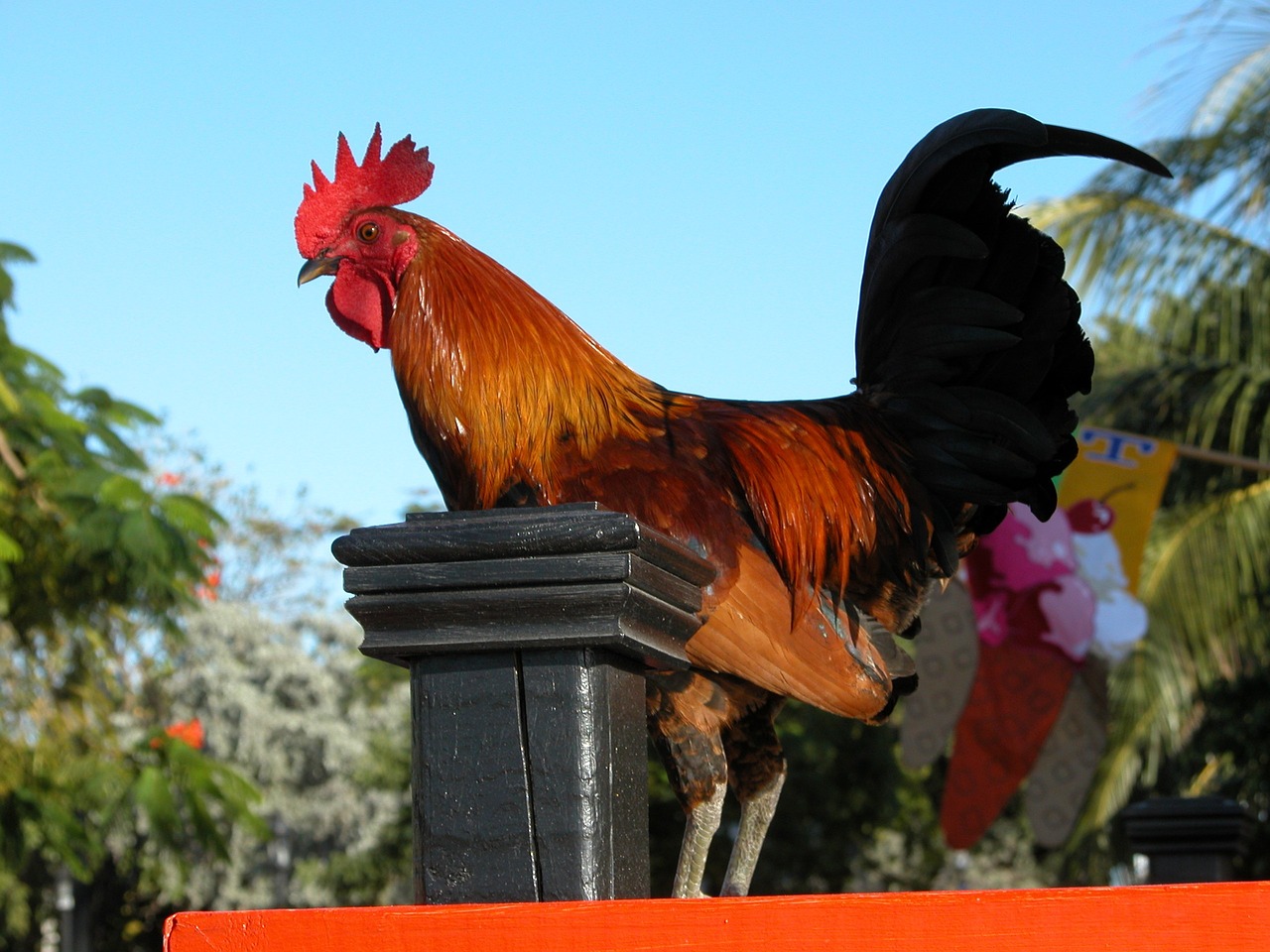
Raising a rooster is a great idea, but it’s not without its challenges. If you are thinking about keeping roosters in your backyard flock, you need to consider the following factors.
1. Zoning
Depending on your municipality, you may not be allowed to keep a rooster. Certain zoning laws restrict the ownership of roosters, limiting how many you can own, while others do not allow them at all.
Doing your research in your own area’s laws is important – especially because some towns and cities do not allow homeowners to keep chickens at all!
2. Aggression
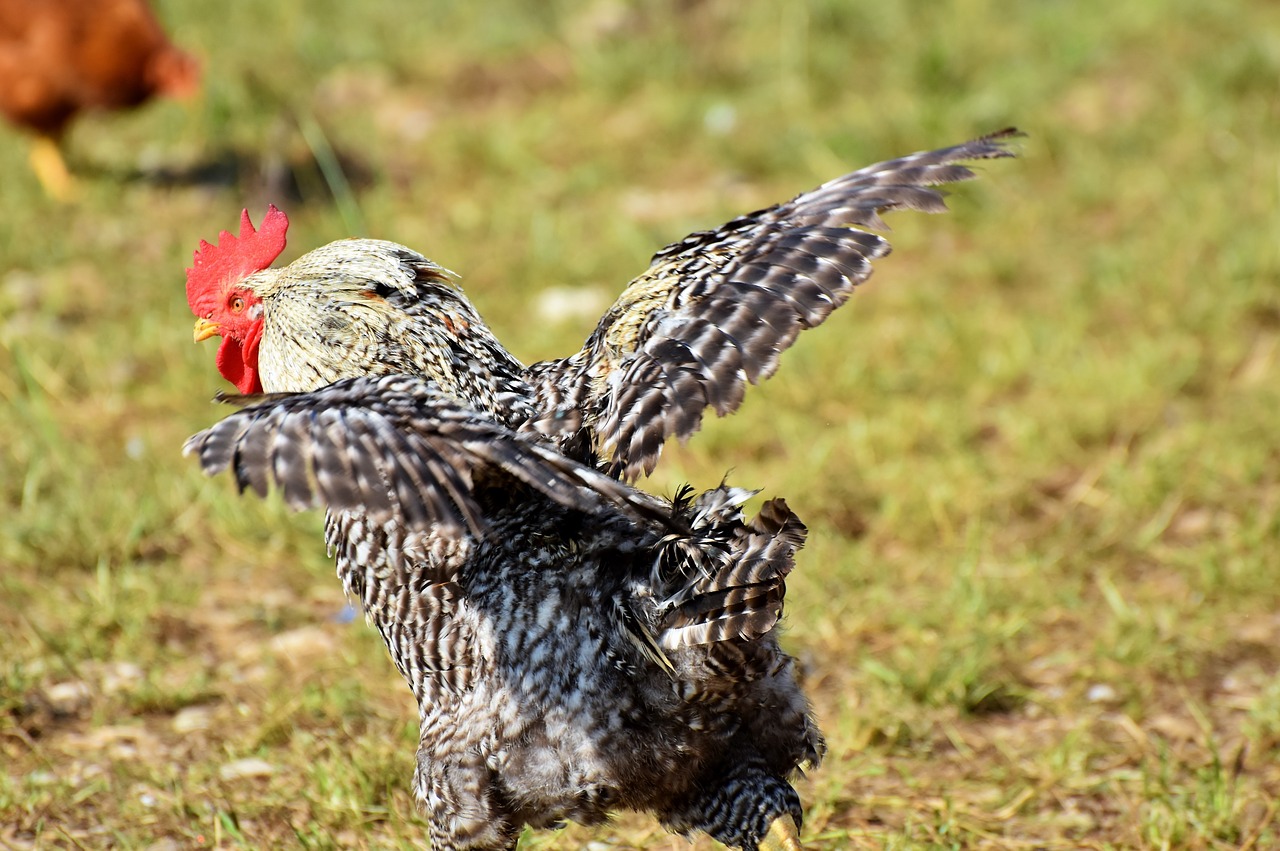
Don’t necessarily rule out the possibility of keeping a rooster just because you are worried about potential aggression. This is foolish for a couple of reasons – first of all, not all roosters are aggressive. Some are particularly docile, and this can vary significantly among breed and individual birds.
Do your research on the various chicken breeds to select a rooster with a mild or even friendly temperament.
It’s definitely worth your time to try keeping a rooster – but have a back-up plan in case the bird is overly aggressive. Often, there are techniques you can use to minimize aggression in a flock, such as keeping only one rooster. Other times, you may need to find a new home for your rooster – or send it to the stewpot.
3. Stocking Density
As a corollary to the point I mentioned above, if you just have one rooster, you are much less likely to notice signs of aggression than if you have more than one. If you have multiple roosters, you are likely going to notice some squabbling as they duke it out for the top of the pecking order.
If you decide to keep multiple roosters, just be aware of appropriate stocking densities. It’s generally recommended that you keep no more than one rooster for every six hens – and event that can be questionable. Just keep an eye on the dynamics of your flock to determine an appropriate stocking density.
4. Noise
One of the biggest benefits of owning a rooster is that it will be your own personal alarm clock! However, this can also be a serious disadvantage. Not only does having a rooster mean you will have to put up with crowing first thing in the morning, but it also means you run the risk of seriously annoying your neighbors. Make sure they are on board before you pick up your new roo.
Also, remember that roosters don’t limit their crowing to first thing in the morning, either. They’ll make noises whenever they want to, whether that’s when they perceive a threat (whether real or not) or when something annoys them.
It may be worth your time to consider the placement of your rooster on your property, too. If you have a large lot, for example, you might want to move the roosters as far away from the property line as possible to avoid disturbing your neighbors.
5. Lifespan
This isn’t necessarily a disadvantage of keeping a rooster, but certainly, something to keep in mind. The average rooster, just like the average hen, will only live for about five to eight years. You will want to plan accordingly to ensure the health and longevity of your flock.
6. Health Needs
In general, a rooster can be cared for just like any other chicken. However, you may need to consider removing his spurs if he becomes too aggressive.
Also, if you are keeping your rooster with a flock of laying hens, you need to make sure he has a separate feed or that your girls receive their calcium supplements through oyster shells instead of a special layer feed.
This is because too much calcium in a rooster’s diet can cause serious kidney problems – after all, he doesn’t need the extra calcium, since he won’t be laying any eggs.
Deciding if a Rooster is Right for You
As any chicken keeper knows, it’s much easier to come by free roosters than free hens. A lot of people simply don’t see the value in keeping roosters because they are so loud and could be aggressive.
Despite these minor imperfections, however, there are many more pros to raise roosters. Consider adding one to your backyard flock soon.
